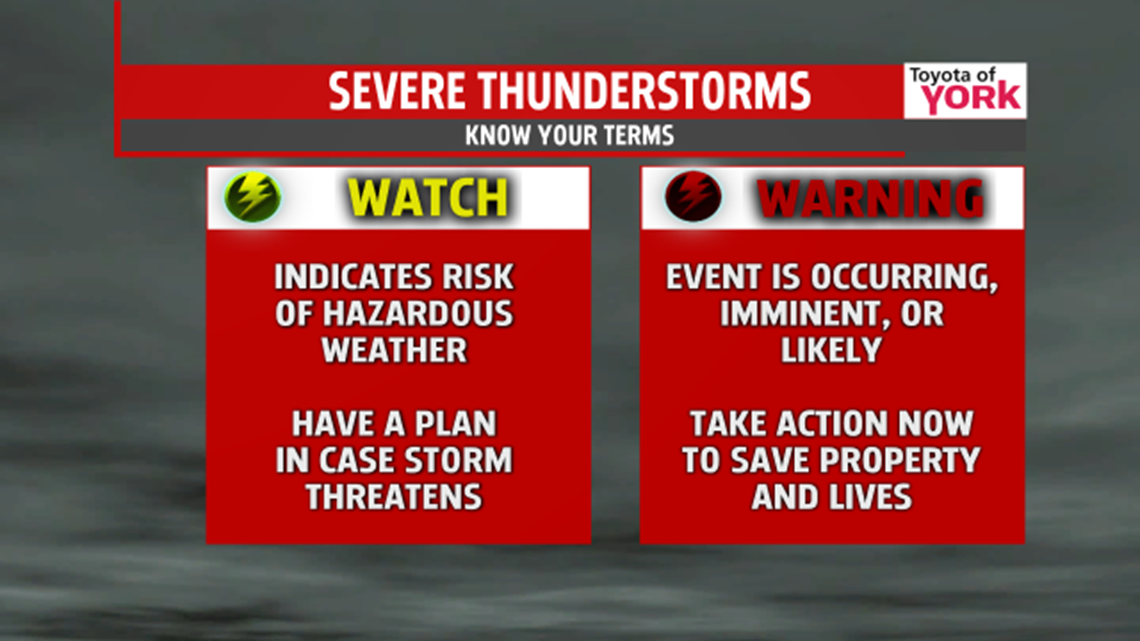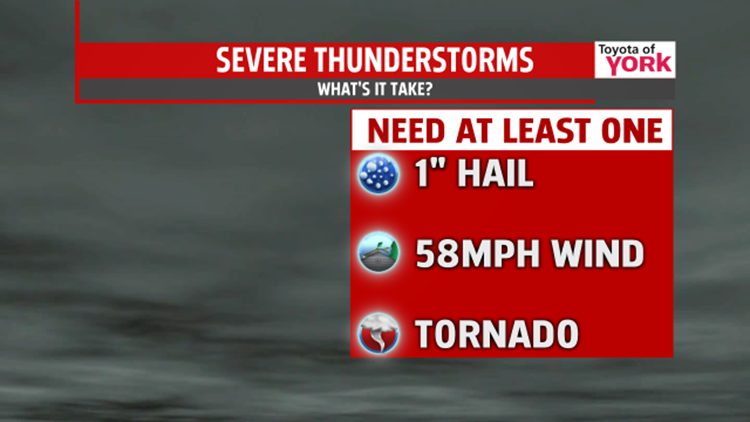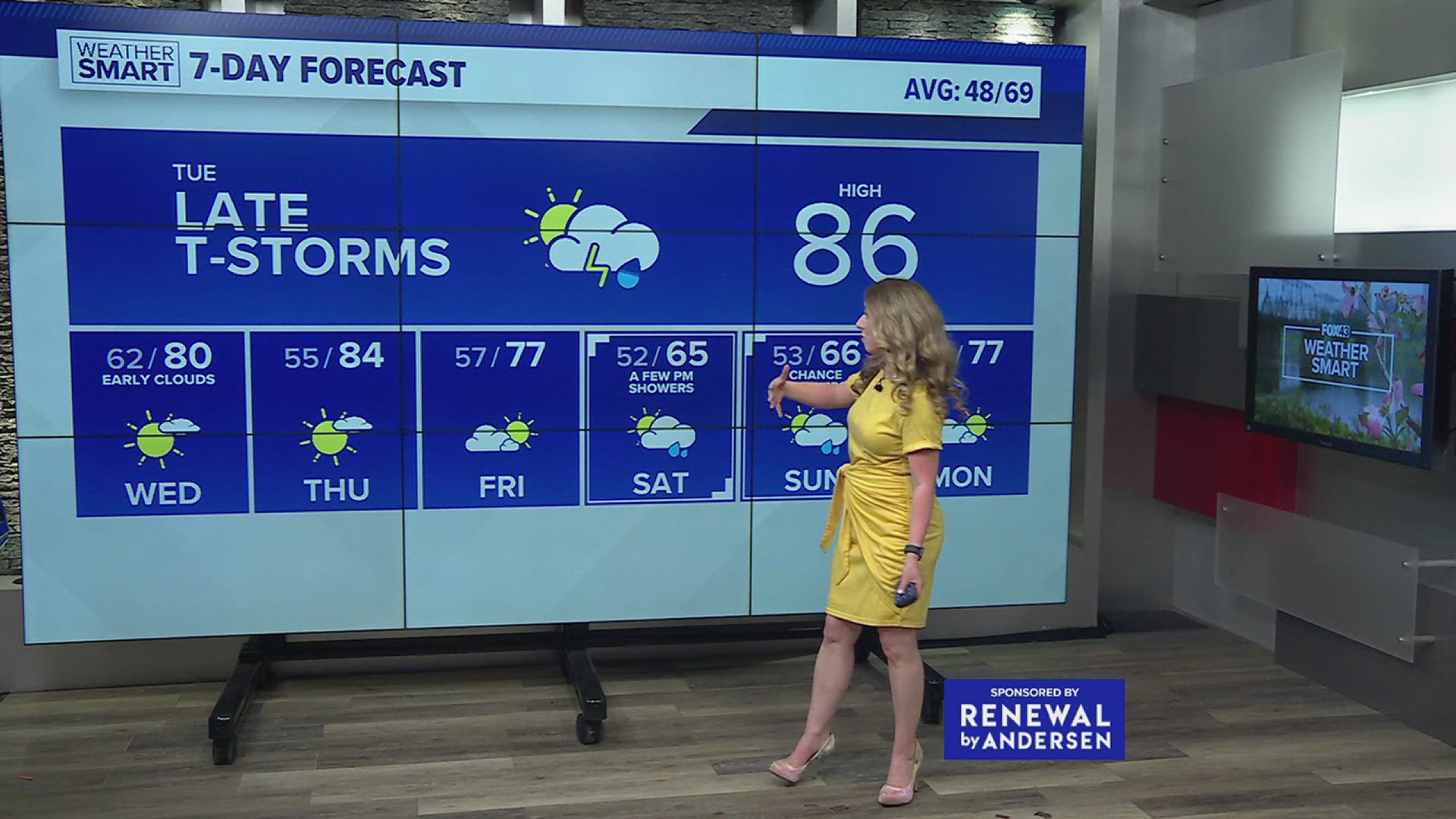It’s Severe Weather Awareness week in Pennsylvania. Each day of the week is dedicated to increasing awareness on severe weather common to our commonwealth. Tuesday is dedicated to severe thunderstorms and safety. We’ll discuss some PA thunderstorm facts and give you some safety tips below!
Every county in our viewing area is susceptible to severe thunderstorms. Severe thunderstorms are defined as thunderstorms containing at least one of the following:
- hail of 1” diameter or larger
- winds of 58mph or higher
- tornado
Severe thunderstorms often contain dangerous lightning, which is not a requirement for a storm to be severe, but it’s dangerous and deadly nonetheless. Also, some thunderstorms produce intense downpours which could result in flash flooding. We see an average of 20 severe weather days a year in the lower Susquehanna Valley, with wind damage reported about three times as frequently as hail.
A severe thunderstorm watch is issued when conditions are favorable for severe thunderstorms to form. These typically last 6-8 hours and cover a large geographical area. When a watch is issued, you should be prepared to take action in the event of a warning and ensure you have immediate access to breaking weather information. On average, we have 14 severe thunderstorm watch days in the lower Susquehanna Valley annually.


A severe thunderstorm warning is issued when a severe thunderstorm is imminent or already occurring. These warnings are usually block shaped, based on the storm path and may cover several counties. These typically last 30-60 minutes, and most often are 45 minutes. When a severe thunderstorm warning is issued, you should take immediate action to ensure your safety and the safety of others.
Here are some tips to help keep you safe.
- Get to the lowest floor of your home or office.
- Go to the most central, interior room of your home, away from doors and windows.
- Close all doors and windows.
- Avoid using water for showers or dishes as lightning may travel through plumbing.
- Turn off and unplug TV’s and appliances to avoid electrical surges from lightning.
- Avoid using corded phones.
- Wait at least 30 minutes after the last rumble of thunder to go outdoors.
For more information, visit the NWS State College Severe Weather Awareness page HERE.
Stay safe!
– Jeff Jumper, FOX43 Morning Meteorologist
Follow me on Twitter: @JeffJumperWX
Like me on Facebook: Jeff Jumper FOX43



